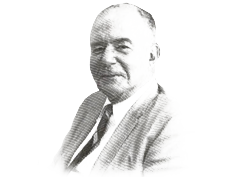Jennifer Lee is the Julian Clarence Levi Professor of Social Sciences at Columbia University and President of the Eastern Sociological Society. An award-winning author and experienced public commentator, she has been uniquely successful in advancing new democratic narratives of Asian Americans, and placing the study of Asian Americans centrally in the discipline. She is author or co-author of four-award winning books, including The Asian American Achievement Paradox, The Diversity Paradox, Civility in the City, and Asian American Youth, and more than three dozen journal articles which have been published in leading journals including American Sociological Review, Social Forces, Annual Review of Sociology, The ANNALS of the American Academy of Political and Social Science, PNAS, and Daedalus. Her wide-ranging research addresses morally urgent questions about the implications of contemporary U.S. immigration—particularly Asian immigration—on the native-born population. She has studied this from a variety of analytical lenses, including immigrant entrepreneurship and ethnic conflict, intermarriage and multiracial identification, educational opportunities and outcomes, and demographic change and affirmative action.
Jennifer Lee’s most recent book, Asian American Achievement Paradox, garnered five national book awards, including the Pierre Bourdieu Book Award and Thomas and Znaniecki Book Award. In it, she and her co-author tackle the vexing question: Why do second-generation Asians exhibit exceptional academic outcomes, even when controlling for socioeconomic factors like parental education, occupation, income, and residential segregation? They bring culture back into the debate about second-generation outcomes and tackle the “Tiger Mother” controversy head on by bridging research in immigration, race/ethnicity, and social psychology in a novel way.
They show that the root of Asian American achievement results from the change in U.S. immigration law in 1965 that privileged highly educated and highly skilled applicants, and ushered in a new stream of “hyper-selected” immigrants from Asia. Hyper-selected immigration from Asia continually replenishes stereotypes of Asian Americans as highly-educated, highly-skilled workers, which, in turn, creates a status advantage for Asian Americans and boosts their academic outcomes. Their research resolves the vexing Asian American achievement paradox that the status attainment model could not explain while rejecting the cultural fallacy that Asians value education more than other groups.
The call to dispel the cultural fallacy is even more pressing in the new culture war on affirmative action. Asian American have taken center stage in the latest battle over affirmative action, yet their voices have been muted by political entrepreneurs who claim they are the latest victims of the policy. In her latest project, Jennifer Lee draws on national surveys of the U.S. Asian population, and places Asian Americans’ experiences and attitudes at the center of her analyses. Drawing on research and insights from history, literature, psychology, political science, and sociology, she advances a new democratic narrative of group that has been weaponized by pundits as ardent opponents of affirmative action. This research project has been funded by the National Science Foundation, the Russell Sage Foundation, the Ford Foundation, and the Social Science Research Council.
Jennifer Lee serves on the Board of the Obama Presidency Oral History, and will join the Board of Trustees of the Russell Sage Foundation in the Fall of 2021. She has been a Fellow at the Center for Advanced Study in the Behavioral Sciences at Stanford, a Fellow at the Center for the Study of Race, Politics and Culture at the University of Chicago, a Visiting Scholar at the Russell Sage Foundation, and a Fulbright Scholar to Japan. Strongly committed to public engagement, she has written for The New York Times, The Washington Post, Los Angeles Times, San Francisco Chronicle, CNN, and a variety of other media outlets.

